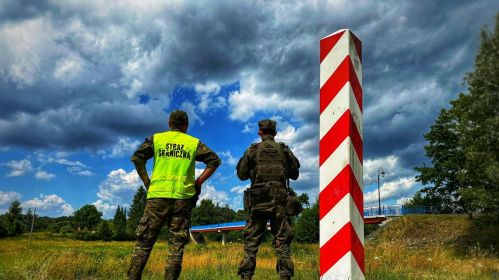Telewizja Polska S.A. w likwidacji processes your personal data collected when you visit individual websites on the tvp.pl Portal (hereinafter referred to as the Portal), including information saved using technologies used to track and store them, such as cookies, web beacons or other similar technologies enabling the provision of tailored and secure services, personalize content and advertising, provide social media features and analyze Internet traffic.
Click "I accept and go to the website" to consent to the use of automatic tracking and data collection technology, access to information on your end device and its storage, and to the processing of your personal data by Telewizja Polska S.A. w likwidacji, Trusted Partners from IAB* and other Trusted TVP Partners, for marketing purposes (including for automated matching of advertisements to your interests and measuring their effectiveness) and others, which we indicate below.
Consent is voluntary and you can withdraw it at any time in Advanced Settings.
In addition, you have the right to request access, rectification, deletion or limitation of data processing. In the Privacy Policy, you will find information on how to communicate to us your will to exercise these rights.
Consent to the use of data for some IAB Trusted Partners and TVP Trusted Partners may be related to the transfer of data to the United States or other third countries (not belonging to the European Economic Area, which includes the Member States of the European Union as well as Norway, Iceland and Liechtenstein). In connection with the above, we would like to inform you about the possible risk that may be associated with the transfer of data to third countries, consisting in the possible lack of an adequate level of protection of natural persons related to the processing of their personal data, which is guaranteed by the provisions of the GDPR (Regulation of the European Parliament and of the Council (EU 2016/679 of 27 April 2016 on the protection of individuals with regard to the processing of personal data and on the free movement of such data, and repealing Directive 95/46 / EC), due to the lack of an adequacy decision by the European Commission and the lack of adequate security.
The user's personal data processed by TVP may be processed both on the basis of the user's consent as well as on the basis of a legitimate interest, i.e. without the consent of the Portal user (only for the purposes necessary to ensure the proper operation of the Portal). TVP processes user data on the basis of a legitimate interest only in situations where it is necessary for the provision and proper operation of the Portal, i.e. maintenance and technical support of the Portal, ensuring security, preventing fraud and removing errors, statistical measurements necessary for the proper functioning of the Portal.
Detailed information on the processing of your data can be found in the Privacy Policy.




